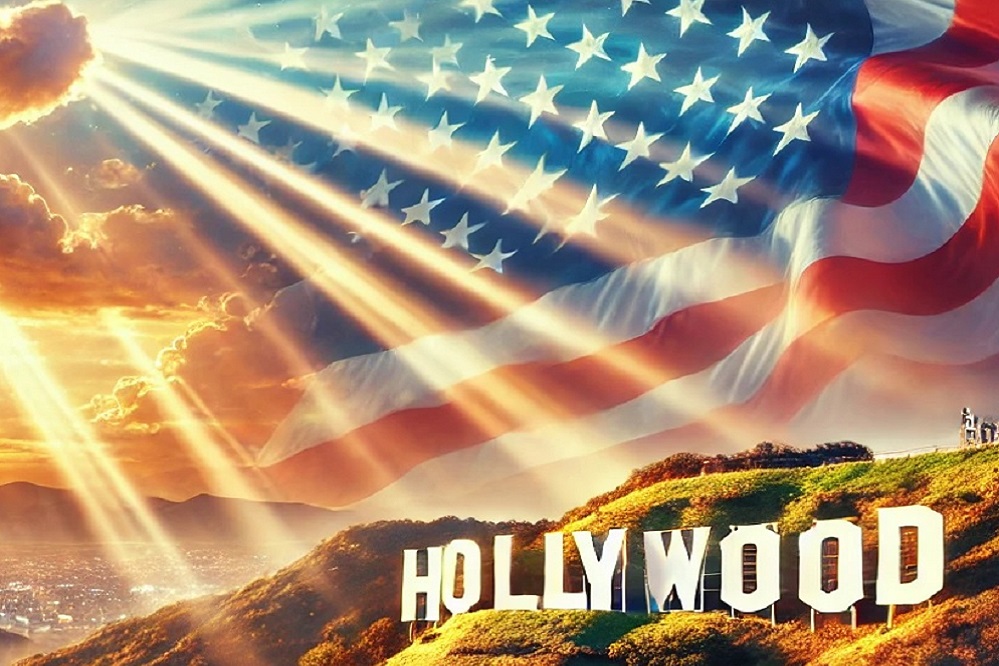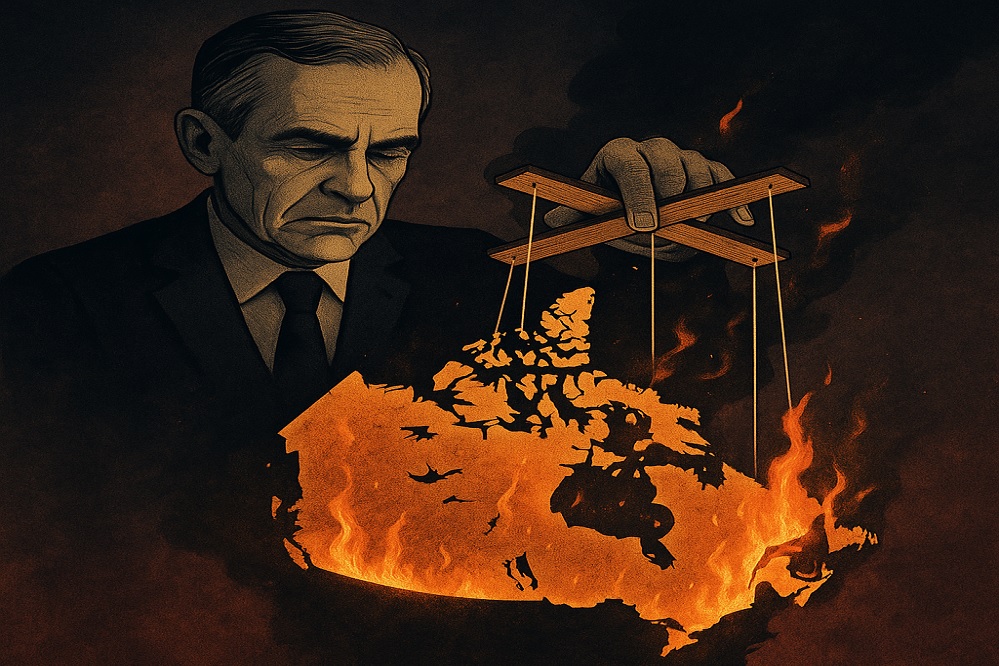Hollywood has always been more than an entertainment industry—it has been a cultural beacon, shaping perceptions of America as a land of freedom, opportunity, and hope. At its best, Hollywood inspired millions, portraying the American Dream as a universal aspiration and celebrating values like family, faith, patriotism, and hard work. Through its storytelling, it reflected American ideals and united people across divides.
Over the decades, however, Hollywood has strayed from these roots. What was once a force for moral good has been overtaken by profit, divisive ideologies, and agendas that undermine the values it once upheld. Instead of uniting audiences, it often promotes narratives that erode family values, weaken cultural identity, and create discord. The industry, once a source of global admiration, now faces criticism for losing its way.
In response, Donald Trump has appointed Mel Gibson, Sylvester Stallone, and Jon Voight as ambassadors to Hollywood. These figures, known for their values and commitment, aim to restore Hollywood’s potential as a force for good, reviving its role as a storyteller of hope, unity, and the timeless principles that define America’s greatness.
The Ideals: Hollywood as a Moral Compass
At its inception, Hollywood reflected the values of the American heartland, celebrating family, hard work, patriotism, and faith. Films conveyed moral lessons rooted in Christian principles like love of neighbor, respect for a higher power, and the dignity of every individual. These universal values resonated with audiences, fostering unity, strengthening communities, and supporting the democratic ideals enshrined in the Constitution.
Hollywood served as a cultural beacon, inspiring hope and shared purpose. Classic films like It’s a Wonderful Life celebrated selflessness and community, while war-time movies rallied support for unity and sacrifice. Storytelling reinforced the belief that freedom thrives on responsibility and virtue.
However, Hollywood’s immense influence has made it a battleground for competing ideologies. Once a force for moral good, it now often promotes agendas that erode family values, cultural identity, and national unity. Instead of unifying narratives, modern films frequently dismiss traditional values as outdated or oppressive.
Hollywood’s power to inspire is unparalleled. By returning to its roots—celebrating family, faith, and shared purpose—it can reclaim its role as a moral compass, shaping a future that honors the principles that built strong communities and upheld democracy.
The Problems: Hypocrisy and Cultural Erosion
Over time, Hollywood has strayed from its foundational ideals. Today, it often undermines the very fabric of American society by promoting divisive narratives, ignoring inconvenient truths, and bowing to globalist agendas. Some key issues include:
1. Vilifying White Nations While Celebrating Others
Hollywood disproportionately highlights the flaws of white-majority nations while glorifying or excusing the atrocities committed by other groups. This narrative ignores the shared human history of conquest and oppression where for example example:
- First Nations: Tribal warfare, slavery, and territorial dominance were widespread long before European settlers arrived in North America. Portraying them solely as victims erases these truths and gives no memory to the complex histories of conquest, warfare, and territorial domination. Tribes such as the Iroquois waged brutal campaigns like the Beaver Wars, decimating the Huron, Erie, and Neutral tribes through slavery, torture, and massacres. The Comanche, known as the “Lords of the Plains,” expanded their empire by raiding and enslaving neighboring tribes like the Apache and Tonkawa. In the Pacific Northwest, the Haida and Tlingit conducted coastal raids, capturing slaves and displacing smaller tribes. The Sioux expanded their territory by annihilating or subjugating tribes like the Pawnee and Crow, while the Apache targeted rivals such as the Navajo and Pueblo through relentless raids. Even the Mi’kmaq contributed to the extinction of the Beothuk in Newfoundland. Many tribes claimed vast territories without marked boundaries or permanent settlements, leading to constant conflicts over land and resources. Torture, scalping, and ritual humiliation were common tactics, used to instill fear and assert dominance, as seen with the Iroquois and other groups. This complex and often brutal history challenges romanticized narratives and highlights the shared human capacity for conquest and survival.
- Mexico and South America: The history of Mexico and South America is steeped in conquest, exploitation, and internal strife, with echoes of its dark past still visible today. The Spanish conquest of the Aztec and Inca Empires in the 16th century led to the enslavement, forced conversion, and systemic eradication of indigenous populations. Entire civilizations, such as the Tainos of the Caribbean, were wiped out through disease and exploitation. The legacy of colonialism also saw the establishment of large-scale plantations dependent on African slaves, perpetuating cycles of oppression and inequality. In modern times, this history is mirrored in the region’s brutal drug trade, where cartels wield unchecked power, corrupt governments, and brutally silence opposition. Politicians and activists attempting reform are often assassinated, creating an atmosphere of fear and lawlessness. Instead of portraying Mexicans as traitors fleeing their homeland and crawling under the U.S. border, Hollywood could tell stories of patriots who fight to dismantle cartels, restore governance, and rebuild their country. Such narratives could inspire pride and a call to action, emphasizing hope and resilience rather than despair and escapism.
- Asia: The Mongol Empire’s brutal conquests, Japan’s wartime atrocities, and China’s suppression of Tibet and other regions are rarely scrutinized in Hollywood. The Mongol Empire, under Genghis Khan and his successors, was one of the most brutal regimes in history, responsible for the deaths of an estimated 40 million people during its conquests across Asia and Europe. Cities like Nishapur and Baghdad were annihilated, with their populations massacred or enslaved, leaving vast stretches of land depopulated. Japan’s wartime atrocities during World War II, including the Rape of Nanking—where hundreds of thousands of civilians were slaughtered and women subjected to systematic rape—stand as one of the darkest chapters in modern history. The conscription of “comfort women” from Korea, China, and other occupied territories further exemplifies Japan’s imperial cruelty. Meanwhile, China’s suppression of Tibet has led to the destruction of monasteries, the persecution of Tibetan Buddhists, and the erasure of an ancient cultural heritage. Similarly, the Uyghur Muslim population in Xinjiang faces forced labor, internment in “reeducation camps,” and cultural genocide. Southeast Asia’s Khmer Rouge regime in Cambodia, responsible for the deaths of nearly two million people through genocide and forced labor, highlights the brutality of political extremism. Despite the scale of these atrocities, Hollywood often shields these histories from scrutiny, choosing instead to disproportionately criticize Western powers.
- Africa: The transatlantic slave trade often omits the critical role of African leaders who sold their own people into slavery, distorting history and assigning blame to only one side. It rarely mentions historical truths such as that of Anthony Johnson, a black African who arrived in Virginia as an indentured servant in the early 1600s, became one of the first prominent African landowners in colonial America. After gaining his freedom, Johnson acquired land and even owned indentured servants himself, including one named John Casor. In 1654, Johnson went to court to claim that Casor was his servant for life, marking the first legal case in American history where a black man successfully fought to retain ownership of another black man as a slave. This case set a precedent for lifetime servitude and highlighted the complex and often overlooked history of African involvement in the early institution of slavery in America.
- Arab Nations: Arab nations, often depicted through the lens of modern Islam or terrorism, have a complex and largely overlooked history of conquest and cultural suppression. Before the rise of Islam, the Arabian Peninsula was home to diverse pagan, Jewish, and Christian communities, many of which were eradicated or absorbed as Islam expanded. Tribes like the Ghassanids, who were Christian Arabs allied with the Byzantine Empire, and the Himyarites, a Jewish kingdom in Yemen, were systematically displaced or destroyed. The Islamic conquests of the 7th and 8th centuries extended across the Middle East, North Africa, and parts of Europe, wiping out many indigenous cultures and imposing a new religious and political order. For example, the Berber culture of North Africa was significantly altered under Arab rule, with forced conversions and the replacement of native languages by Arabic. Zoroastrianism, once the dominant religion of Persia, was nearly eradicated after the Arab invasion, with its followers persecuted or forced to flee. Hollywood rarely explores these stories, focusing instead on modern narratives of conflict and extremism, ignoring the rich and diverse histories of the pre-Islamic world and the cultural losses that accompanied its subjugation. This one-sided storytelling perpetuates a narrow view of Arab history, omitting the vibrant civilizations that existed before Islamic dominance.
2. Pushing Pro-China and Globalist Agendas
Hollywood has increasingly prioritized profit over principles, catering to the censorship demands of the Chinese Communist Party (CCP). The industry frequently alters scripts and removes culturally significant elements to appease Beijing, becoming a tool for promoting China’s authoritarian agenda. For example, Marvel’s Doctor Strange replaced a Tibetan monk with a Celtic character, and Top Gun: Maverick removed Taiwanese symbols to ensure access to the Chinese market. Such compromises erode artistic freedom and undermine Hollywood’s credibility as a champion of democracy.
This deference extends to ignoring China’s oppressive actions, including the ongoing suppression of Uyghur Muslims, Tibetans, and pro-democracy activists in Hong Kong. By complying with CCP demands, Hollywood aligns itself with a regime that silences dissent, erases history—like the Tiananmen Square Massacre—and promotes global authoritarianism through initiatives like the Belt and Road Initiative. Instead of telling stories that champion freedom and expose oppression, Hollywood’s complicity sacrifices its moral responsibility for financial gain.
3. Erasure of Cultural Authenticity
While claiming to champion diversity, Hollywood often imposes tokenism that erases authentic cultural representation. By forcing multiracial casts in historically or culturally inaccurate contexts, it diminishes the richness of distinct traditions. For example, The Great Wall prioritized Western leads in a story set in ancient China, while Bridgerton created a multiracial British aristocracy that ignores historical realities. Instead of celebrating specific cultures authentically, Hollywood homogenizes narratives, prioritizing inclusion over meaningful storytelling.
Unlike Nollywood or Bollywood, which focus on their own cultures, Hollywood insists on token casting, including one of every race in nearly every production, regardless of context. While representation is important, this approach reduces individual cultures to stereotypes and overlooks the beauty of stories focused entirely on one group. There is nothing wrong with films featuring all-white, all-black, or all-Asian casts when the story reflects their culture, heritage, and history.
Additionally, Hollywood often glorifies the exodus of people from their home countries to white-majority nations, depicting it as a necessity for a better life. For instance, black culture in Hollywood is often reduced to depictions of ghettos, violence, rap music, and drug dealing, without exploring deeper narratives. Rarely do these stories encourage black Americans to reconnect with their roots in Africa or show Africans striving to rebuild their own nations. Similarly, narratives about Latinos focus on escaping poverty or cartels and crossing the U.S. border, rather than on patriots returning to fight corruption and restore their countries.
Hollywood also frequently pairs black men with white women, sidelining black, Asian, and Indian women and suggesting that interracial relationships are the ultimate path to success. This portrayal disregards the importance of preserving cultural and racial identities within marriages and communities. Respecting the choice to uphold these boundaries is not regressive but an acknowledgment of the value of cultural heritage.
Films like Get Out and 12 Years a Slave center on white guilt and slavery, often portraying white people as oppressors while ignoring shared histories and complexities, such as African leaders’ roles in the transatlantic slave trade. Such narratives alienate audiences, creating division rather than fostering understanding.
By homogenizing cultures and imposing tokenism, Hollywood sacrifices authenticity. True diversity celebrates the richness of distinct cultures and encourages stories that inspire people to uplift their own communities and nations. It is not about fleeing challenges but confronting and overcoming them, with pride in one’s heritage and history.
4. Anti-American and Anti-Christian Narratives
Hollywood has increasingly vilified traditional American values and Christianity, framing them as outdated or oppressive, while glorifying ideologies that undermine national unity. Films and shows frequently portray Christian characters as hypocritical, fanatical, or intolerant, ignoring the foundational role that Christian principles of love, charity, and justice played in shaping Western democracy and the American Constitution. These principles fostered values like individual liberty, equality, and the pursuit of justice—cornerstones of America’s success as a democratic nation.
In contrast, Hollywood often champions radical social agendas that challenge traditional norms, such as the normalization of transgenderism and the erosion of gender roles. While tolerance and representation are essential, aggressively promoting these narratives as societal norms alienates many Americans who feel their values are under attack. This creates unnecessary conflict and division within communities, rather than fostering understanding and dialogue.
One of the reasons the United States became a beacon of success and freedom is that its culture was grounded in the belief that “man cannot live on bread alone.” This acknowledgment of spiritual purpose and higher ideals enabled the creation of a system where faith, reason, and morality worked together to build strong, democratic institutions. In contrast, many other nations struggle under the weight of fanatical religious systems that enslave people rather than empowering them to create democratic governance. For example, extremist interpretations of Islam in certain Arab nations suppress women’s rights, stifle individual freedoms, and prioritize strict adherence to dogma over innovation and progress. Similarly, communist regimes like China replace spiritual freedom with state-imposed atheism, controlling thought and eliminating personal liberties.
Hollywood’s rejection of traditional faith and values not only weakens its moral authority but also alienates global audiences who respect these principles. For instance, countries with deeply rooted Christian or spiritual traditions—like many in Eastern Europe, Latin America, and Africa—may view Hollywood’s aggressive social messaging as a threat to their cultural identity. Instead of tearing down these traditions, Hollywood should recognize the power of faith to unite and inspire people. Stories that celebrate the uplifting role of religion, morality, and values in overcoming adversity could resonate globally and bring hope to divided societies.
By rejecting anti-American and anti-Christian narratives, Hollywood could lead a cultural renaissance that respects foundational values while embracing the diversity of thought. True progress lies not in erasing traditions but in finding a balance that honors the principles of democracy, freedom, and human dignity that made America a model for others to follow.
5. Excessive Wokeness and One-Sided Narratives
In its pursuit of “woke” culture, Hollywood often sacrifices balanced storytelling, replacing nuanced dialogue with one-dimensional narratives that demonize opposing viewpoints and silence dissent. By prioritizing ideological conformity over authentic representation, Hollywood undermines its potential to inspire meaningful change and foster understanding among its audiences.
Hollywood rarely explores stories of hope and redemption within nations facing crisis. Instead of focusing on narratives of struggle and escape, why not highlight individuals who choose to stay and fight for their countries? For example, rather than glorifying Mexicans fleeing to the U.S., Hollywood could tell the story of a Mexican who returns to rebuild their homeland, dismantling cartels, reforming corrupt systems, and restoring pride and safety. Similarly, films could depict African leaders or activists working to uplift their nations, tackling systemic issues like poverty, corruption, and conflict instead of perpetuating the image of Africans as helpless victims reliant on foreign aid or fleeing to Western nations.
Such stories would inspire global audiences to see the value in fixing their own nations rather than perpetuating cycles of escape and dependency. These narratives could emphasize the importance of patriotism, resilience, and self-determination, showing how individuals can create change from within. By celebrating those who choose to address the root causes of their country’s challenges, Hollywood could redefine the concept of heroism as not just fleeing adversity but confronting and overcoming it.
Furthermore, Hollywood’s insistence on woke culture often excludes the complexities of cultural pride and sovereignty. Nations with rich traditions and histories are reduced to stereotypes or forced into narratives that align with Western ideals of progress. Stories of individuals preserving their heritage while modernizing their societies could provide a more balanced perspective, fostering respect for diversity rather than enforcing conformity.
By embracing narratives of hope, redemption, and self-reliance, Hollywood could move beyond divisive woke culture and reclaim its role as a global storyteller that unites and inspires. True progress comes from celebrating resilience, addressing challenges head-on, and showing audiences that positive change begins at home.
The Globalist Agenda: Divide and Conquer
The selective vilification of white people is a deliberate strategy by globalist forces to weaken cultural identity, erode national sovereignty, and sow division. By focusing solely on Western colonialism and slavery while ignoring similar practices by other nations—such as the Mongol Empire’s brutal conquests or the Ottoman Empire’s enslavement and genocide—globalists create a skewed narrative that fosters guilt and shame in white-majority countries. This divide-and-conquer tactic destabilizes societies, making them easier to manipulate under centralized global control.
Hollywood plays a significant role in advancing this agenda, perpetuating narratives that frame white cultures as uniquely oppressive while ignoring the shared human history of conquest and survival. Films often focus on white guilt and Western flaws while neglecting atrocities committed by other nations or the contributions of Western values, such as democracy, science, and individual freedom. This imbalance breeds division, fostering resentment among minorities and guilt within majority populations, fracturing societal unity.
By aligning with this narrative, Hollywood undermines its credibility as a global storyteller. Instead of promoting division, it should focus on balanced, honest storytelling that highlights shared struggles, celebrates cultural pride, and fosters unity. Recognizing the flaws and strengths of all cultures is essential for resisting manipulation and protecting the democratic values that empower individuals and nations to thrive. Hollywood has the power to unite but must reject narratives designed to divide and conquer.
The Correction: Trump’s Vision for Hollywood
Recognizing Hollywood’s outsized influence, Trump’s appointment of Mel Gibson, Sylvester Stallone, and Jon Voight as ambassadors signals a bold effort to reclaim the industry’s cultural power. These figures bring with them a wealth of experience and a commitment to reviving Hollywood as a force for good:
- Mel Gibson is known for unapologetically tackling controversial themes in films like The Passion of the Christ and Apocalypto. His focus on historical accuracy and moral storytelling offers a blueprint for films that educate and inspire.
- Sylvester Stallone, with his iconic portrayals of resilience and patriotism in Rocky and Rambo, embodies the triumph of the human spirit and the power of perseverance.
- Jon Voight is an outspoken advocate for traditional values and has consistently used his platform to defend American ideals and Christian principles.
The Solution: Restoring Hollywood as a Force for Good
To achieve a cultural revival, Hollywood must:
1. Promote Family-Friendly Content
Hollywood should prioritize films that celebrate family values, faith, and community. Storylines rooted in Christian principles, such as love, forgiveness, and respect for others, can serve as a unifying force in a divided society.
2. Embrace Authentic Representation
Rather than forcing tokenism, Hollywood must celebrate the unique histories and traditions of all cultures. This means supporting diverse voices while respecting the integrity of individual identities and values.
3. Resist Foreign Censorship
Hollywood must refuse to bow to authoritarian regimes like China. By prioritizing artistic freedom over profit, the industry can reclaim its role as a defender of democratic values.
4. Encourage Honest Storytelling
Telling the full truth about history, even when it’s uncomfortable, fosters understanding and growth. Films should address the complexities of issues like slavery, colonization, and global conflicts without ideological bias.
5. Focus on Hope and Solutions
Audiences need stories that empower and inspire. Hollywood should celebrate human ingenuity, resilience, and progress, focusing on themes like environmental restoration, innovation, and unity.
Conclusion: A Vision of Hope
Hollywood has the power to shape minds, inspire change, and unite humanity. By embracing stories that celebrate freedom, democracy, and shared values, it can become a force for global renewal. This is not just about America reclaiming its cultural influence; it’s about reminding the world that the principles enshrined in the Constitution are universal. They belong to everyone who believes in hope, freedom, and the triumph of good over evil.
“Let Hollywood remind us that the American Dream isn’t about fleeing challenges but confronting and overcoming them. Together, we can build a future where freedom and justice prevail, and the stories we tell inspire the world to believe in a brighter tomorrow.”




